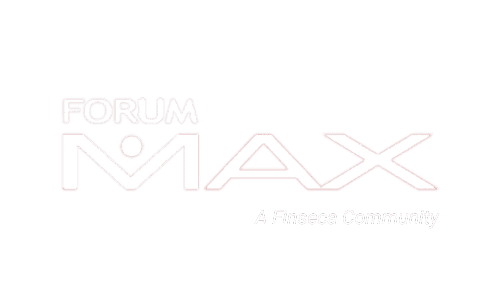
WASHINGTON, D.C. (December 12, 2023) – Later this morning, the Department of Labor will begin hearing public testimony on the proposed fiduciary rulemaking package. Finseca’s CEO Marc Cadin’s prepared testimony is as follows:
Before I get into my testimony, I would first like to express a happy Hannukah to everyone – particularly members of the Department, my fellow panelists, and our teams that are members of the Jewish faith.
I want to begin by stating some simple truths.
First, it’s incredibly disheartening that you [the Department of Labor] have decided to jam this rule through during the holiday season.
Second, while we have repeatedly tried to engage in a constructive dialogue over the course of several years now, just like many of our industry partners have, we have found your lack of responsiveness and disregard for the undeniable consequences of this rule to be unfortunately consistent.
And third, it seems clear that you are determined to pursue a rule that is perhaps well intended, but one that will unquestionably harm the financial security of the American people and make it harder to bring people into the financial security profession at a time when we desperately need to grow it.
Because of those reasons, Finseca strongly encourages the Department to withdraw this offensively framed and substantively bad fiduciary rule.
My name is Marc Cadin, and I am the CEO of Finseca. Finseca was created in 2020 to reunify the financial security profession – the men and women who believe that holistic financial advice is the key to advancing the cause which is the inspiration behind our name – Financial Security for all.
Finseca has brought four different organizations together over the last 3 years. GAMA, which represented the career agency leadership. NAILBA, which represented independent distribution and the brokerage marketplace. AALU, who represented advisors and was the advocacy organization. And the Forum400 which represented the top advisors in the profession.
We are blessed to have the most diverse Board in the entire industry which includes representatives from every role within the profession.
Our north star – and unifying principle – is best captured by independent research conducted by Ernst and Young. This research, which we’ve shared with the department multiple times, proves that holistic financial plans which include permanent life insurance, investments, and annuities are objectively better for consumers. And when consumers have a holistic plan, they get better outcomes.
Unfortunately, the regulatory burden under this proposed rule will make it impossible for millions of Americans to access the products and advice they need to become financially secure.
This proposed rule will take us in exactly the wrong direction at exactly the wrong time. Americans face a $7 trillion gap in retirement savings. We are facing the insolvency of Social Security within the next decade. And, according to estimates by LIMRA, we face a $12 trillion protection gap.
At Finseca, we support a regulatory environment that provides the best outcomes for consumers – provides them with protections, as well as one that enables our members to work to serve their clients.
We were a constructive force that brought real world examples during the SEC’s process to adopt a best interest standard as well as the NAIC’s adoption of Model Rule 275, which as you have heard, has been adopted by 40 states.
Some have said these rules don’t go far enough and are not sufficient in their consumer protections. I would submit that anyone who makes this point is almost certainly pushing their own agenda, not the financial security of the American people, and they certainly don’t have a clue about what actually happens in the real world.
In preparation for this hearing, I had an opportunity to talk with dozens and dozens of members. One conversation in particularly needs to be shared.
Jacob, a financial security professional from Indiana, was describing the compliance burden on his shoulders, and how significant it is since this profession is regulated by the states, FINRA, SEC, and DOL. All of these rules are filtered through different compliance departments at the companies he works with.
When I talked to Jacob, he described the regulatory burden as being more disruptive than Covid.
Jacob said that “COVID was more of a “delay” in terms of impact. Things slowed down, but business still got done. He still had the ability to meet with clients digitally. Nothing stopped him from moving forward or maintaining relationships.
On the contrary, he describes the regulatory process as a true hindrance in moving clients forward. He noted how intimidating it is to potential clients when they expect to find a relationship with an advisor, but instead have lengthy, complex contracts filled with legalese placed in front of them with the explanation “signing this allows us to pursue a relationship.”
Now Jacob and the tens of thousands of advisors like him continue to navigate the challenging regulatory environment and as I said, Finseca supports smart regulations that protect consumers but one that allows them to have access to the advice and products that they need to become financially secure.
Your latest fiduciary rule seems designed to make it impossible for millions of Americans to get the advice and products they need to become financially secure.
While we are still working through the specific impacts of this proposal and its intersections with myriad regulatory regimes on a broad diversity of business models with our members – during their busiest season of the year and some of the biggest holidays of the year – I would be remiss if I didn’t give you a couple of very specific examples of why your rule is so problematic.
First, the framing of this rule is offensive, misleading, and factually inaccurate. Commissions are not junk fees. State regulation is not inadequate. And the Department’s stated reason as to why Fixed Indexed Annuities are up 25% is entirely wrong.
A commission, which is regulated as part of the product approval process by the states, offers consumers a more efficient and effective way to access insurance products and related advice. Implied within the testimony of many here, yesterday and today, is that fees are better.
What they don’t say is that almost all fee-only advisors have a minimum amount of investible assets for them to take someone on as a client. Often, fee-only advisors focus exclusively on investments and ignore the mortality and longevity risks of their clients. These are protected through life insurance and annuities – products essential for that holistic financial plan that EY proved to be in the consumer’s best interests. Last, but certainly not least, on buy and hold solutions such as insurance products, commissions are almost always more cost-efficient for the consumer.
The proposed rule is also substantively bad. The new 84-24 proposal is so restrictive that we believe almost no one will be able to use it. And those few who would be restricted to offering their clients such a limited set of solutions that it undermines the holistic financial plan.
2020-02 is built on a securities/investments model that is ill-suited and limiting to annuity and insurance solutions. The definitions in the proposal are clearly designed to force the maximum number of professionals into 2020-02.
Buying a publicly traded security costs the same to any consumer because it is based on what the market value of that security is on a given day. However, insurance products are different than securities. Professionals who would be forced to use 2020-02 often offer their clients insurance solutions from competing carriers. These products compete directly with each other – to consumers’ benefit – on price, features, service, and underwriting. This makes the co-fiduciary requirement of 2020-02 impractical to impossible.
The list of problems with the proposed rule goes on and on. We will be sure to document all the issues in our comment letter.
But I’d like to close with a couple of final thoughts.
The work done by the Department stands in stark contrast to the will of Congress. A broad bipartisan coalition passed, and President Trump signed Secure 1.0 into law in December of 2019. At the time, it was the most sweeping retirement legislation enacted in a generation. Not to be out done, but another broad bipartisan coalition passed, and President Biden signed into law Secure 2.0 in December of 2022.
Two sweeping pieces of legislation passed within 3 years – one signed into law by President Trump and the second by President Biden. I’m hard pressed to think of another area that has enjoyed such bipartisan support like Secure 1.0 and Secure 2.0.
This is because members of both parties, in both Houses, in both administrations understand that we need to get Americans saving earlier. We need to open greater access to savings accounts. And we need to promote products like annuities which provide a guaranteed stream of income for life.
Our elected representatives understand that defined benefit plans no longer exist for the vast majority, that more risk and responsibility are placed on the American consumer, and that they need help.
Our elected representatives understand that we have a looming crisis with Social Security and Medicare and that we need more private sector solutions.
Our elected representatives understand that people like Jacob, and the thousands of people like him, want to serve their clients. They understand that people like Jacob want to help their clients make better financial decisions. And in turn, take care of his family and his employees.
For all of these reasons, and countless others, we urge the Department to withdraw the rule. Thank you for your time today.
Media Contact
Maggie Seidel – (c) 202-718-7774 | mseidel@finseca.org
About Finseca
At Finseca, we know that financial security improves people’s lives and protects their livelihoods and future wellbeing. We are rising to the challenge of increasing financial security for all. Finseca represents the men and women of the financial security profession who dedicate themselves to delivering financial security to their clients every day.






